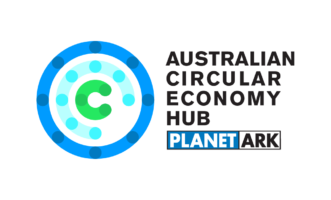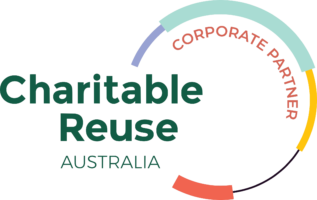Chris Thomas profiled by Inside Waste
Article on Inside Waste by Mike Wheeler

Unlike a lot of young professionals, MRA Consulting Group environmental consultant Chris Thomas didn’t fall into the waste industry by accident. Growing up in Massachusetts in the United States of America as the son of an American mother and Australian father, Thomas had a conservationist’s eye from a young age.
His parents, especially his mother, were both keen on making sure their environment was clean and green. As a youngster, when out walking his dog, Thomas was troubled by the amount of rubbish lying around some of the beautiful places he used to visit.
“I also got to travel quite a bit when I was younger and I would constantly see trash everywhere,” he said. “It really distracted me when I was out trying to enjoy these beautiful vistas. I’d see a candy bar wrapper, so I got into the habit of picking it up and trying to leave the area cleaner than when I arrived.”
A lightbulb moment happened when Thomas went on a trip to Bali, Indonesia when he was 16. While there, he met two sisters who were a couple of hears younger than him who had gone on a hunger strike in order to make the government ban plastic bags. He saw the effect the strike had on the local community and how it embraced the girls’ idealism, which got him to thinking, “why can’t we do this in the US?”
“That inspired me during my senior year of high school to create a plastic bag ban and push it through local government, work with interest groups, and talk to the people who work in the waste industry in my hometown,” he said. “And this spurred my passion. We ended up passing this plastic bag ban. It was an awesome experience. I worked with the Girl Scouts of America collecting signatures at events, as well as interest groups and the town council, as well as canvassing businesses around town. I ended up working on that law for about a year and a half from the beginning of my senior year at high school to when I came down to Australia to start university.”
Even though Thomas was a passionate environmentalist when he arrived on Australian shores, he was also pragmatic. To a lot of people seeking a university education (and especially their parents, who foot some of the bill) the environmental/waste industries are not hotbeds of activity when it comes to job opportunities – well not from the outside looking in. This is why Thomas decided to do a finance-related degree.
“For somebody that simply was a bleeding-heart environmentalist to go through to do a banking degree may seem weird to some people,” he said “especially now that I’m an environmental consultant. My parents were always very pragmatic, and businesspeople/consultants. And they were like, if you study business, you can go and do whatever you want”.
While at university, Thomas was still active in the environmental space, but found the type of institutions within the university system that supported such causes were either too political or didn’t offer up alternative solutions to what they were fighting against. For example?
“There was this club at school that was trying to get the university to divest from fossil fuels,” he said. “And I was like, ‘Okay, interesting. Have you brought the university any alternatives to fossil fuels that have similar returns?’ They looked at me like I had three heads. They’d never thought about it.”
Far from being put off by the negative experience, Thomas decided to start a society of his own that focused on creating small businesses that looked at the different waste streams within the university. He admits that he will never develop the next super biodegradable material, but he does know something about logistics and putting together good business practices when it comes to waste. He said there were a lot of great ideas that came out of the society, so when it came to graduating from university, Thomas knew he wanted to be in the waste industry. He has a particular fascination with plastics – a substance he believes is not given a fair shake.
“Plastic is the most misunderstood material around,” he said. “It’s lightweight, durable, cheap to produce, but it’s not recycled well. I also believe it’s used in too many single-use products where another material would be better. There are a lot of misconceptions around plasti
Tweet
When it came to getting a job, his brother advised him to follow his passion and get a consulting job within the industry he is passionate about. Consultancy in its various forms runs in the family. Not only are Thomas’s parents’ consultants, but so is his brother. However, he felt there was an obstacle or two in his way.
“I was lost when I graduated because I didn’t really know how to get into the sustainability consulting area without being an engineer or scientist,” he said.
“I was like, ‘I did the wrong degree, I’m screwed’.” However, his parents suggested he go and work for a waste company just to learn some of the ins and outs of what makes the industry tick. He ended up at BINGO Industries. “I worked there for six months,” said Thomas. “I started there as an IT guy. I was literally doing cold calls for clients and doing basic products testing for them.” Within two or three months of being at BINGO, the Chief Information Officer asked him to sort out an issue he had, which meant Thomas ended up doing some audits for a range of transfer stations. He saw it as a basic consulting project.
“I did this for about three months and figured out the problem,” he said. Although it was a nice feather in Thomas’s cap, he now felt he was in a state of limbo as to what he would be doing next. At about that time, he was invited to attend an incubator that BINGO was funding. It was there he spoke with an MRA employee who introduced him to the company’s managing director, Mike Ritchie.
“I told Mike that my passion has always been about waste even though I’m a finance guy,” said Thomas. “I told him how I understand money, business, and logistics. He told me I’d fit in great there and that’s how I got the job. I’ve been at MRA for about a year and four months.”
A typical day at MRA for Thomas centres around data and new technologies, such as Power Bl and Al. He also does report/proposal writing, business logistic support, and auditing.
“I enjoy the different challenges,” he said. “I’d be bored if it weren’t for different challenges I get on a regular basis. I’m going to learn as much as I can. MRA is such a conducive space for learning, especially for my type of learning where I can talk to people and can pull different information out of them by osmosis.”
He thinks that as a country Australia does well when it comes to C&D and C&I waste but believes residual streams can be handled better, while Al will start having an impact over the next 12-24 months.
“It’s skyrocketing right now. The waste industry is so read for disruption.” he said. “It almost makes your stomach turn because you’re getting whiplash from everything moving so quickly.”
Thomas believes the waste industry is largely influenced by the commodity markets and what a material’s value is versus how costly it is to sort recycle. The government can tip the scale to make certain material/ items more economically attractive to recycle though.
“There’s going to be a slow trickle of money from the government that can prop up these new Al systems that need to train themselves about the different waste streams from tens of thousands of photos of waste,” he said. “And the thing is that we’re not learning because we’re not getting the information. For example, we are gathering some images of the different waste streams, but we need to be gathering hundreds of thousands of pictures of trash.”
He believes Al will make it simpler for these items to be identified and put into the correct waste streams. which in turn will make auditing more precise, as well as having cleaner streams. This in turn, will encourage government procurement agencies to have confidence in using recycled materials in government projects. Al will also provide other data so infrastructure can be built to accommodate trends.
“Governments can get information from other perspectives in terms of understanding consumers, and understanding the consumer behaviours from this.” he said.
This information would be highly valued by big companies who are trying to understand what new areas of the market they can break into. Imagine a Cleanaway or Veolia selling information on consumer behaviour of different suburbs to a Coca Cola or Colgate.
Thomas’s bigger picture is training consumers to change. Not an easy task, but with enough tenacity, it can be done, he believes.
The only way that we’re going to be able to stop this needless waste is to stop needlessly consuming and try and do more with what we have. The onus is on every individual to consume less material and ‘carbon’ intensive products. To achieve this there has to be more of an effort
Tweet
This article has been published by the following media outlets:




